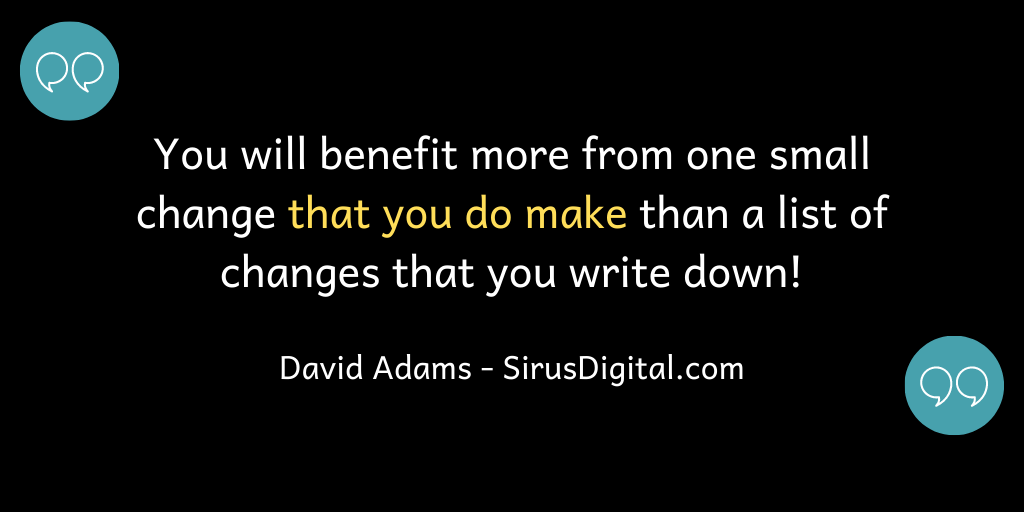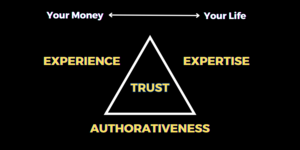Why Resolutions Stink!
Focusing #OneSmallChange will win almost every time!
Consider:
- Did you make resolutions this year?
- How long did they last (because odds suggest that you have already quit)?
- Were they different than your resolutions from last year and did you get any closer to achieving them?
So why are resolutions ineffective? Why do they stink?
Resolutions fail not because of your Goal, but the distorted filter through which you eventually see it. When viewing your Goal and seeing progress toward it, your focus is not on the daily grind. Too often, we quit measuring progress made and instead focus on delays or failures.
The flaw with resolutions is that they are focused on the destination instead of the journey. Eventually, excitement deteriorates to frustration as your positive goal becomes a negative obligation.
For example, the positive objective to lose weight becomes filtered through the lens of a diet. The diet morphs into a list of things you cannot eat. With that change of perspective, the desired long-term goal fades to short-term denial. Frustrations and temporary setbacks turn hope to surrender. In the same way, interests or skills that were the basis for a career can become a miserable job that you hate.
There has to be a better way to affect change!

#OneSmallChange Is Better!
As an alternative to resolutions and end-state-focused goals, we need a structure for life change focused on the day-to-day activities that achieve them. Whereas our parents and grandparents celebrated a journey, our vacations are measured by the destination. Our view of the journey is to make it as short as possible. Lost is our enjoyment of travel with family and friends.
In the same way, for change to be successful, we should value the activities that lead to the goal as much as the desired outcome.
Goal-setting and Lifestyle Design systems tend to focus on some variation of SMART goals. As noted earlier, the problem is these attributes are describing the Goals, not the Actions that will achieve them. Our challenge is not our capability to aspire, but our ability to following through on the day-to-day activities that produce the outcome.
What attributes might small lifestyle design changes have?
Action
- Adjustable – People and situations change. While the overall goal may not change, the activities to achieve it most definitely will. Flexibility is key to momentum and motivation.
- Concrete – “Get Healthier” or “Lose Weight” are goals and objectives. They are not actionable steps. Until you determine your path, you are unlikely to get to your destination regardless of how desirable it may be.
- Targeted – Small changes made daily and weekly highlight visible progress when the journey gets tough.
- Intentional – This is the What (and How) to achieve the Why.
- Observable – Our progress must be visible and measurable. Small changes are viewed in much shorter timelines which provide quicker feedback. Did you follow through on your planned action? Did it move you closer toward the overall goal? What next small change would be most effective?
- can’t Neglect – A common underpinning for lifestyle change is your motivator. If you have to, you will. If you don’t, you probably won’t.
Start Making Your #OneSmallChange

The most important step to any change is the first one! If you have been frustrated in the past with resolutions unfinished and goals that were never realized. Begin focusing your attention on single, small changes that you can make today that will move you closer toward your desired end state.
- Choose #OneSmallChange that you will make between right now and when you go to sleep.
- Follow through on your decision and sleep well tonight celebrating your first step in accomplishment.
- Continue with that #OneSmallChange for six (6) more days.
- On Day 1 and Day 7, add comments below on your change and progress. Let us all celebrate with you!
Check Back Soon for Daily & Weekly #OneSmallChange How-Tos.


